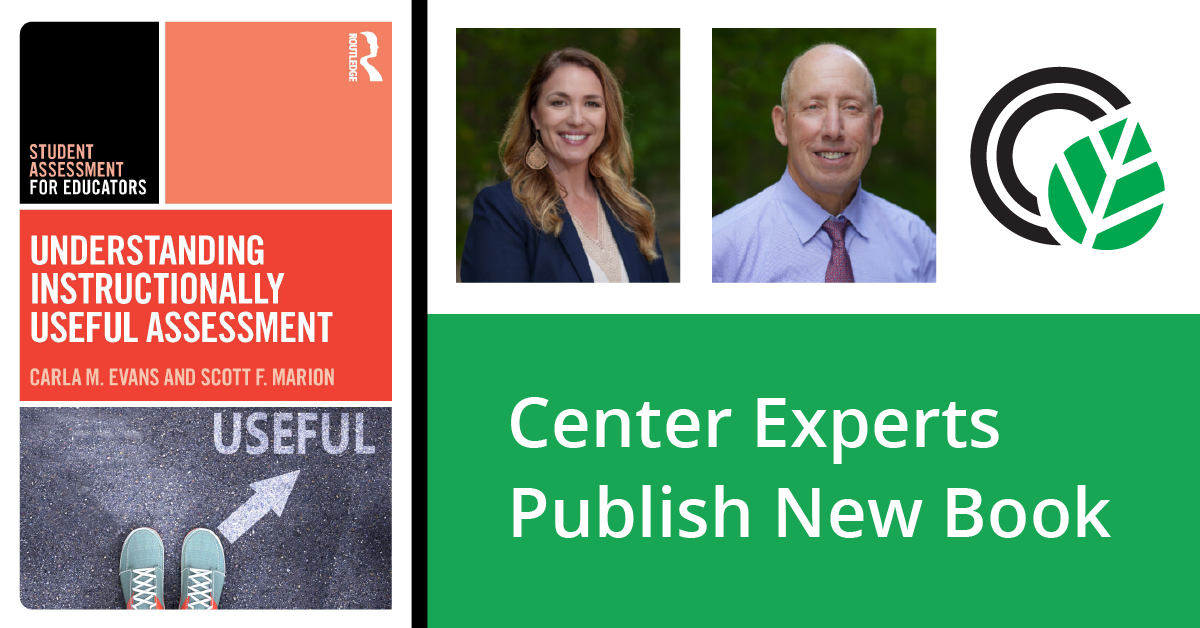
What Makes an Assessment Instructionally Useful?
Center Experts’ Book Sheds Light on Key Issue
Many education leaders and vendors claim that a range of standardized assessments can provide information that’s instructionally useful for teachers. Such claims put teachers in a bind because most tests aren’t designed to yield that kind of information.
That’s what led Carla Evans, a senior associate at the Center for Assessment, and Scott Marion, the Center’s executive director, to write a book that defines instructional utility and identifies 10 key assessment features that make tests more or less useful for teachers.
Understanding Instructionally Useful Assessment, published this month by Routledge, offers new insights into how various types of assessments, from the state to the classroom, differ in their usefulness for supporting instructional decision-making and student learning.
“For teachers, assessment data is like a blizzard,” Evans said. “They’re inundated with a blinding swirl of information from the assessments they’re required to give each year, such as interims or state tests. Not all assessments can provide instructionally useful information, but this often isn’t the message teachers get from many test vendors and education leaders. The reality is that assessments’ instructional utility depends on how they are designed, administered, scored, and reported to teachers.”
To serve their students most effectively, educators must avoid conflating the assessment information that teachers use for instructional purposes and the data that leaders and administrators use for evaluative or monitoring purposes.
This book provides classroom teachers and school and district leaders with a clear conception of what makes assessments—their purpose, design, reporting, and resulting information—useful or not for informing instruction. It shows them how they can select assessment tools suited to specific purposes.
Each chapter addresses the knowledge and skills that K-12 staff need in order to challenge claims made by policymakers, test vendors, or other educators that any assessment can be used to inform instruction. Educators will come away better prepared to remove unnecessary or redundant assessments from their systems and to create structures, policies, and processes that best support the instructional usefulness of assessments for student learning.